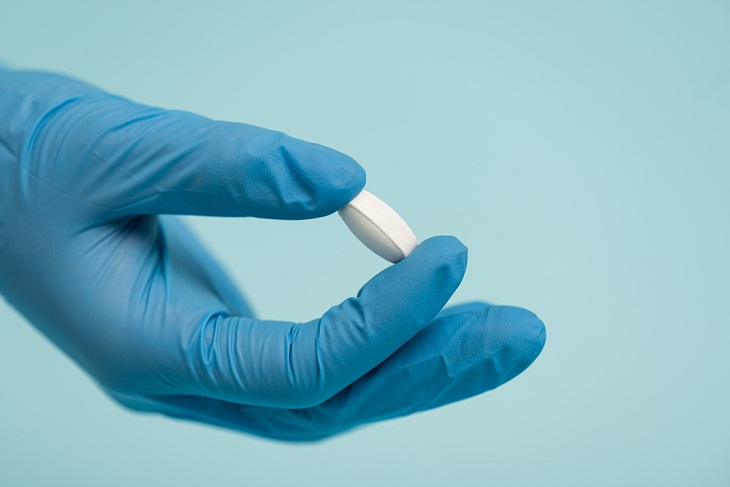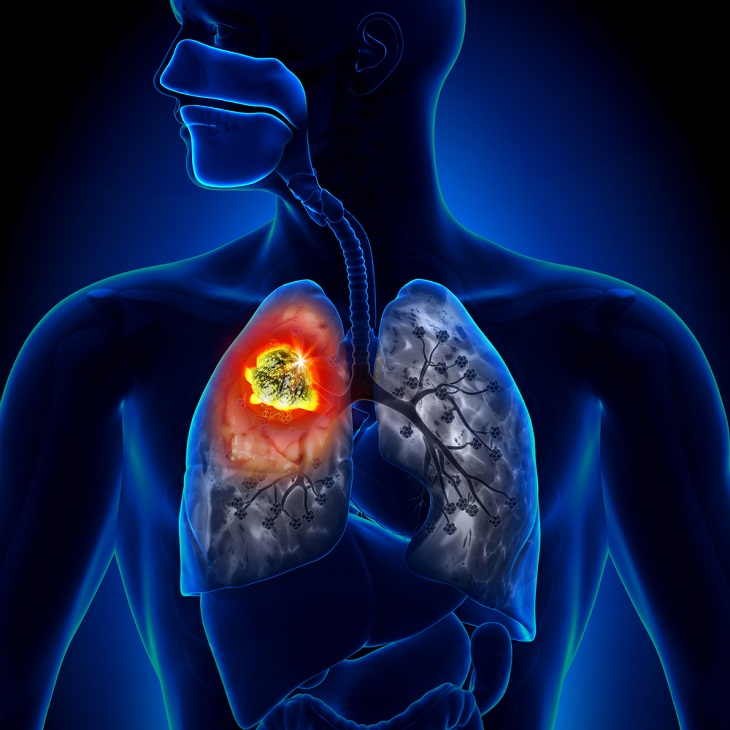Taking a once-daily pill can reduce the risk of dying from lung cancer by half, according to a groundbreaking global study that occurred over the course of a decade. As reported in The New England Journal of Medicine, the drug Tagrisso (also known as osimertinib), made by AstraZeneca, showed a 51% reduction in mortality rates for lung cancer patients over a five-year period.
The results of the late-stage study, spearheaded by Yale University, were revealed at the American Society of Clinical Oncology’s yearly conference in Chicago recently.
Every year, around 1.8 million people worldwide lose their lives due to lung cancer, making it the deadliest type of cancer. These findings are therefore of great significance.
Related: The 10 Most Common Warning Signs of Lung Cancer
What do we know about the new lung cancer pill?
The findings of this study were derived from a trial that involved 682 patients diagnosed with non-small cell lung cancer (NSCLC), one of the two main types of primary lung cancer. All participants in the trial possessed a mutation in the epidermal growth factor receptor (EGFR) gene, responsible for encoding a cell surface protein. These EGFR mutations can enhance the cancer's capacity to proliferate and metastasize, thereby increasing the likelihood of cancer recurrence after treatment.

It's important to note here that approximately 80% to 85% of all lung cancers are NSCLC.
The recent report states that osimertinib primarily operates by blocking the effects generated by common EGFR mutations. Such mutations are present in approximately 25% of lung cancer patients globally, according to The Guardian.
“Thirty years ago, there was nothing we could do for these patients,” said Dr. Roy Herbst, the deputy director of Yale Cancer Center and lead author of the study. “Now we have this potent drug.
“Fifty percent is a big deal in any disease, but certainly in a disease like lung cancer, which has typically been very resistant to therapies.”
Related: The Surprising Link Between Basements and Lung Cancer
The study included patients who were given either osimertinib or a placebo as part of the trial. After undergoing surgical removal of their tumors, the results indicated that, five years later, the survival rate for osimertinib-treated patients stood at 88%, in contrast to 78% for those who received the placebo.
The Guardian quoted Angela Terry, chair of EGFR Positive UK, as describing the five-year overall survival rate of 88% as exceptionally positive. Terry, who had no involvement in the study, highlighted the significance of having access to a drug that has been proven effective and carries tolerable side effects. She emphasized that this provides patients with reassurance and the opportunity to experience an extended period of enhanced quality of life.

Dr. Herbst went on to state that the pill had been verified as a "game-changer" and should be adopted as the standard treatment for roughly a quarter of lung cancer patients globally who possess the EGFR mutation. He explained that the drug is already available in the UK, the United States, and many other countries, but more patients should have access to it in the future.
Unfortunately, the EGFR gene is not tested in all lung cancer patients, says Herbst. This underscores the importance of identifying these patients using existing biomarkers during diagnosis and before commencing treatment.
Related: 4 Practical Techniques for Cleansing the Lungs at Home
In 2017, Tagrisso obtained its initial authorization from the U.S. Food and Drug Administration. This approval permitted the pill to be prescribed as a remedy for advanced NSCLC patients whose tumors exhibited specific EGFR mutations. Later, in 2020, the pill was authorized as the primary "adjuvant treatment" following tumor removal, relying on earlier data from the same trial described in this article.
 Go to BabaMail
Go to BabaMail
























































